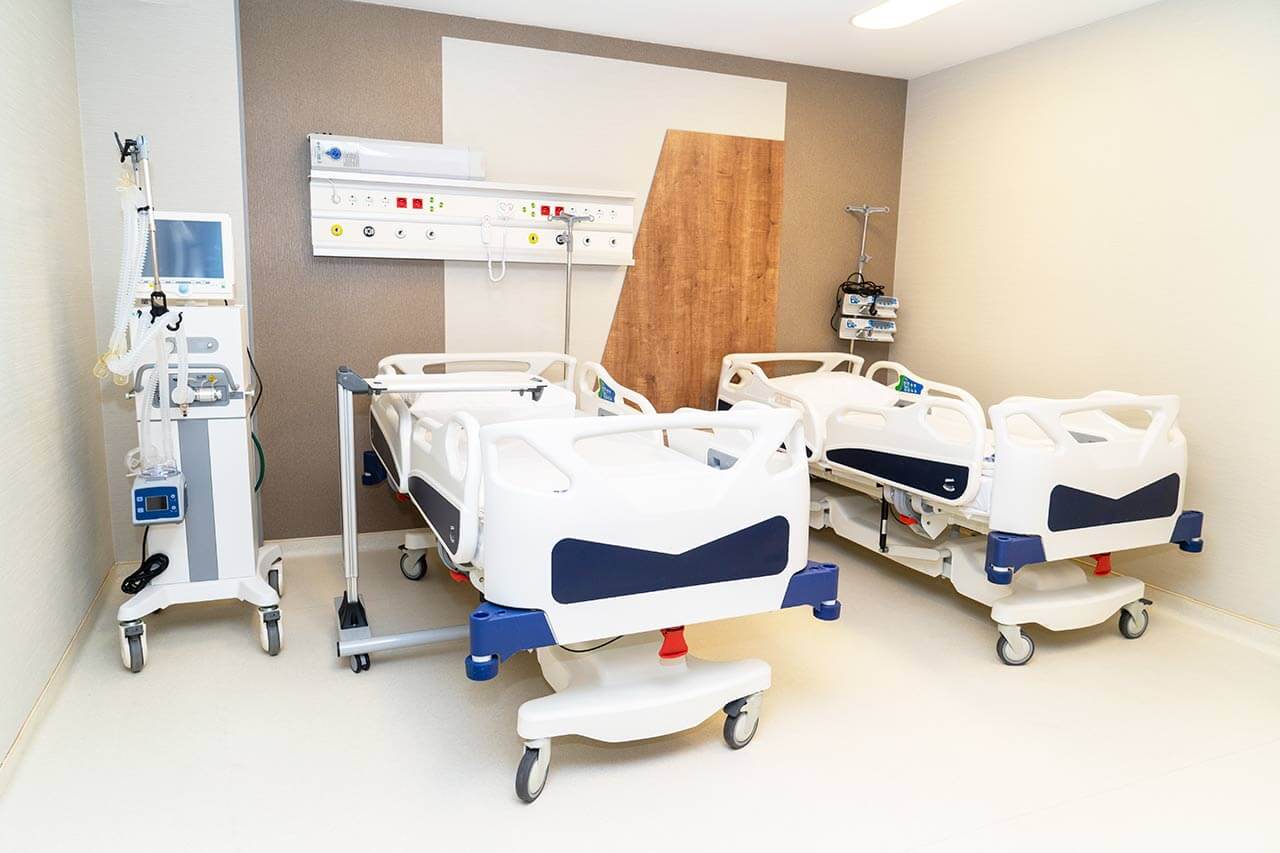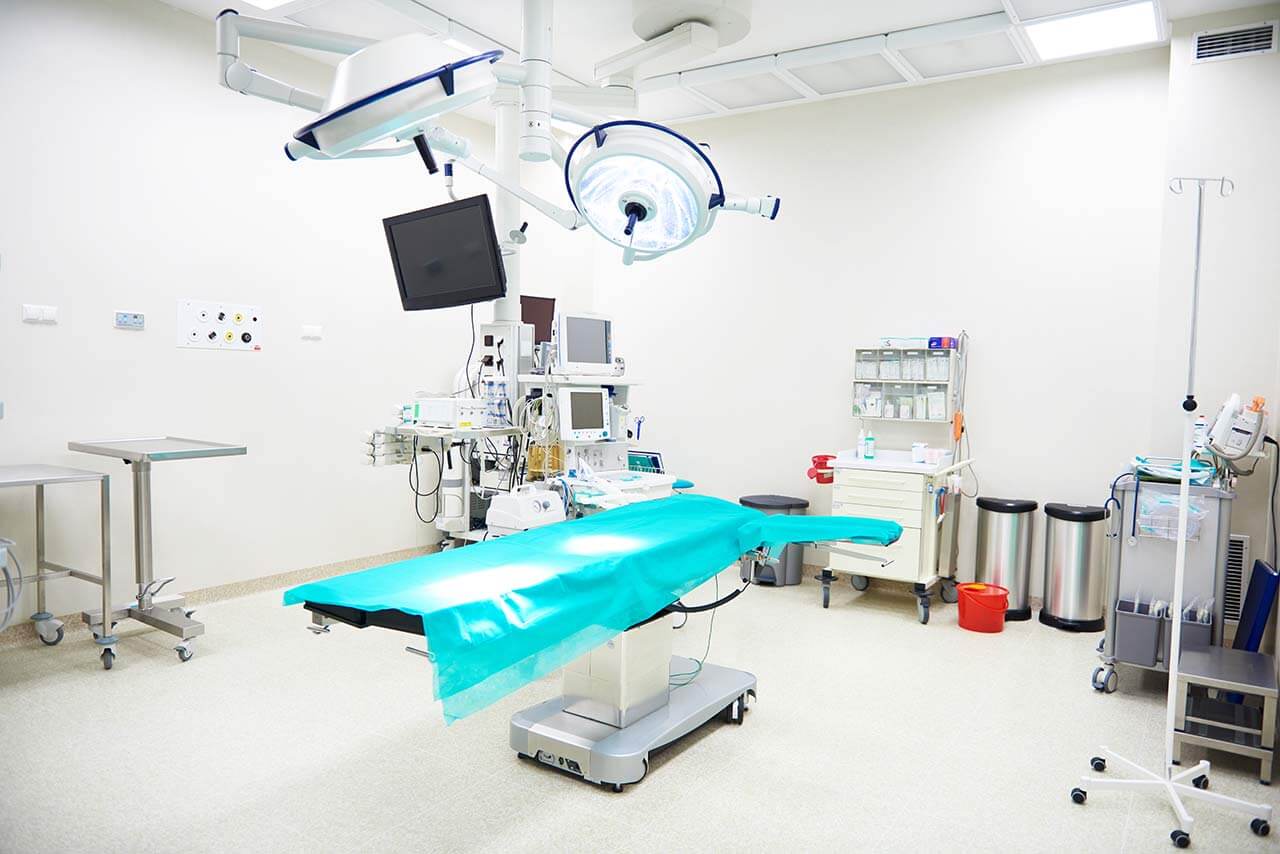
The program includes:
- Initial presentation in the clinic
- clinical history taking
- physical examination
- review of medical records
- laboratory tests:
- complete blood count
- biochemical analysis of blood
- TSH-basal, fT3, fT4
- indicators of inflammation
- indicators blood coagulation
- ultrasound
- preoperative care
- endoluminal bariatric surgery with POSE
- symptomatic treatment
- control examinations
- the cost of essential medicines and materials
- nursing services
- full hospital accommodation
- explanation of future recommendations
Required documents
- Medical records
Service
You may also book:
 BookingHealth Price from:
BookingHealth Price from:
About the department
The Department of Bariatric Surgery at the Assuta Hospital Tel Aviv offers the full range of effective treatments of obesity. The Chief Physician is Dr. med. Subhi Abu Abeid.
The treatment of obesity is a comprehensive process, which involves the participation of nutritionists, gastroenterologists and bariatric surgeons, as well as competent psychologists. Surgical treatment is based on laparoscopic techniques, which reduce the traumatic effect and speed up the rehabilitation period. In addition, it is possible to perform operations using the innovative DaVinci surgical system.
The department offers the following surgical techniques for the treatment of obesity:
- Gastric banding surgery. During the operation, a special ring is placed on the upper part of the stomach. Thus, the stomach is divided into two unequal parts. The volume of the upper part in the stomach decreases and food intake slows down. Since the receptors, which signal to the brain about the saturation are located in the upper part of stomach, the feeling of hunger disappears after eating a minimum amount of food. This method allows the patient to achieve the weight loss by 50-60% from the current body weight. At the same time, it remains possible to regulate the gap of the stomach using the bandage, which allows to achieve the necessary body weight for the patient. The operation is laparoscopic.
- Gastroscopic stomach plastic surgery. The surgery aims to create additional folds inside the stomach with the help of special titanium clips, which reduce the overall size of the stomach. The stomach plastic surgery is a less radical method compared to other surgical methods. This method is used at the early stages of obesity. The surgery is performed using a gastroscope, which allows the doctor to insert the microsurgical instruments combined with a video camera. With the help of special manipulators, the surgeon can control the instruments, observing his work on the monitor screen.
- Gastric bypass surgery. At present, this method is the most effective and allows the patient to reduce body weight to 60-70%. Today, this technique is the "gold standard" among other medical methods of obesity treatment. The gastric bypass surgery is laparoscopic. Thus, only several small incisions are made on the anterior abdominal wall.
- Biliopancreatic shunting allows not only to reduce the stomach volume, but also to reduce the level of nutrient absorption. This is due to the small intestine reconstruction. During this operation, the gallbladder is also removed. This results in a combined effect – food saturation occurs earlier and its digestibility decreases.
- Plastic surgery after a significant weight loss. The main ones include the liposuction, abdominoplasty, torso and hip lift.
Curriculum vitae
Education
- 1982 Faculty of Medicine at the Hebrew University Hadassah, Jerusalem, Israel.
- 1988 Advanced training in the Department of Gastroenterology at the famous medical center ("New assessment method for gastric secretion potential").
- 1989 - 1991 Specialization in General Surgery at the Rokah Hospital, Tel Aviv.
Courses and Advanced Training
- Practice in General Surgical Interventions at the largest hospitals of Rivka Ziv and Suraski.
- Advanced training and internships at the European Surgical Institute, University Magdeburg (Germany), Hospital of Liege (Belgium), University of Atlanta, and Cleveland Clinic (USA).
Membership in Professional Organizations
- Israeli Surgical Association.
- Israeli Society of Endoscopic Surgery.
- International Federation for the Surgery of Obesity.
- American Society for Bariatric Surgery.
- American and International Federation for the Surgery of Obesity.
Academic Activities
- Senior Lecturer, Sackler Faculty of Medicine, Tel Aviv University.
- Lecturer at the course for surgeons on the support of vital organs in injuries (ATLS).
Main Scientific and Clinical Interests
- Laparoscopic and Obesity Surgery, including various methods for the stomach volume reduction.
- Isolated regional perfusion of the separate segments in treatment of developed soft tissue sarcomas and malignant melanoma.
Photo of the doctor: (c) Assuta Medical Centers
About hospital
The Assuta Hospital Tel Aviv was opened in 2009 and today it is one of the largest, modern hospitals with the highest treatment success rates in Israel. The сlinical practice is based on the use of the state-of-art technologies in the world of medicine. The compliance with the high level of medical care and cooperation with the best doctors in Israel is the cornerstone of the hospital’s work and a long tradition of Assuta.
The main clinical focuses of the medical facility include cardiology, neurosurgery, orthopedics, surgery, oncology, gynecology, urology, gastroenterology, reproductive medicine, bariatrics, rehabilitation, etc.
The hospital has 16 state-of-the-art operating rooms, more than 200 beds, resuscitation units, and 2 monitoring laboratories, as well as one of the largest Imaging Diagnostic Centers and the ultramodern Cancer Center.
The hospital was awarded the prestigious certificate of the Joint Commission on Accreditation of Healthcare Organizations for its compliance with high standards of quality and safety of medical care.
Photo: (с) depositphotos
Accommodation in hospital
Patients rooms
The patients of the Assuta Hospital Tel Aviv live in comfortable spacious rooms of a five-star hotel level. The patient rooms are designed in bright colors and equipped with air conditioning, cable TV and other amenities. The rooms have a computer connected to the Internet. In addition to hospital wards, there are also hotel rooms for friends and relatives accompanying the patient, a library, a lecture hall, a recreation room, a prayer house for patients of all religions. On the territory of the hospital there are shops and cafes, where one can drink a cup of aromatic coffee or tea and have a snack.
Meals and Menus
The patients of the hospital are offered a balanced delicious three meals a day: breakfast, lunch and dinner. There are several menus to choose from, including a dietary one.
Further details
Standard rooms include:




